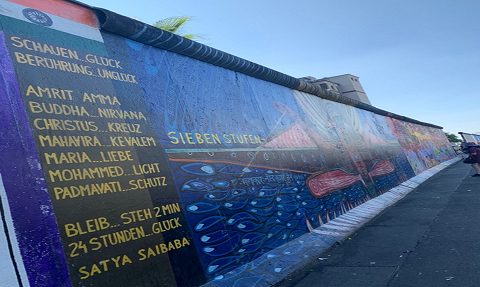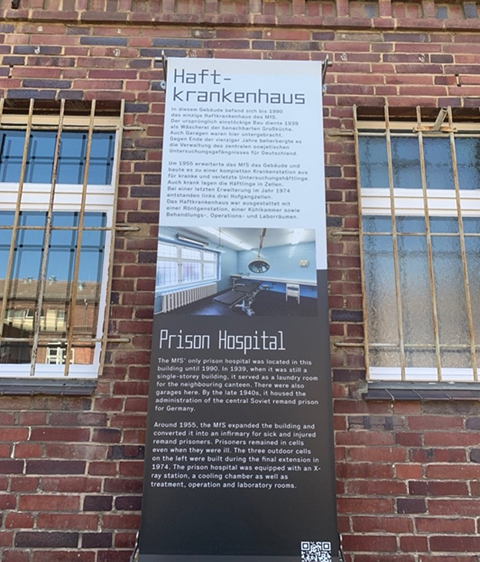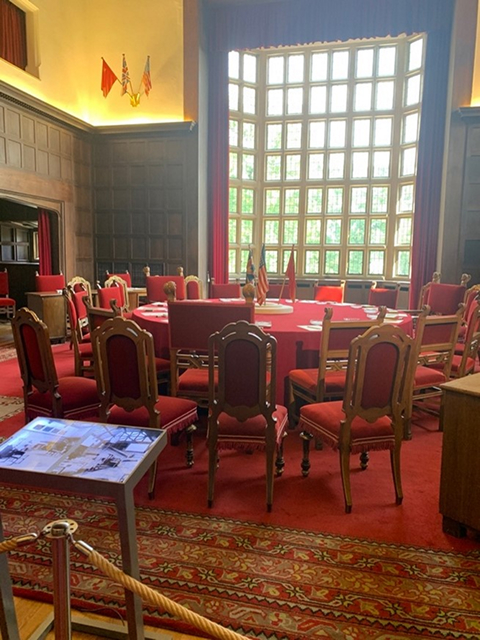2024 Germany
Summer Seminar Report – Jena & Berlin , Germany
September 25, 2024
現代政治研究所 研究協力者
Brief Overview of the Research Presentation (Inspirations, Overview and feedbacks)
One could argue that a person’s childhood experiences impact them throughout their entire life. When I was born, Sri Lanka’s ethnic strife was at its worst. For the first 19 years of my existence, I experienced instability, terror, and tragedies that happened within my own country. During the ethnic conflict, I witnessed people fighting, killing, dying, and losing loved ones. But I was curious as to why this terrible tragedy had to be experienced by the whole nation. I swiftly discovered that my dad and other family members were as perplexed as I was when I questioned them about it.I attempted to read literature about real ethnic strife while I was in school, but I discovered the topic was not included in the curriculum. I came across the answers to my questions when I was an undergraduate. I became aware of the paucity of literature on peace and reconciliation studies in the context of Sri Lanka while pursuing my bachelor’s degree. This gave me the motivation to begin researching peace education and peacebuilding, and in turn, it prompted me to investigate the state of peace education in Sri Lanka (based on the chosen Stakeholder Contribution) for my doctoral degree.
Inspired by my doctoral research, I presented my research paper, “Healing Old Wounds in Post Conflict Sri Lanka; Analyzing the Contribution of Public Schools towards the Process of Peace Education in Sri Lanka,” on August 20, 2024, at the summer seminar in Jena, Germany. I mostly focused on Sri Lanka’s present peace education policy framework and grassroots mobilization. My analysis leads me to the conclusion that the hybrid tenets of positive and negative social interdependence are purposefully included into the current key policy on school-based peace education.
Important moves in that direction include the addition of cooperative peace education-based activities to the history curriculum and co-curricular activities, as well as the creation of the Civil Education topic, which is centered on peace education. Most crucially, I demonstrated that a concerted effort had been made to improve students’ comprehension of inner, outer, interpersonal, and positive peace all of which submissively aid in the growth of positive social interdependence. Additionally, I was able to highlight the fact that the SL School educational structure favors examination-focused conceptual disputes above the creation of more beneficial collaborative channels. In order to maximize the success of peace education initiatives, I also demonstrated the significance of addressing the root causes of conflicts through the establishment of balanced curricula, teacher training, and the implementation of second national language regulations.
I received a lot of remarks and inquiries on the originality, sources of inspiration, and theoretical underpinnings during the Q&A session. I’d like to draw upon Professor Martin’s suggestion that the multidisciplinary approach be used for the study of reconciliation. Since the majority of our conversation revolved around government policies and the curricula of various subjects, including history, civic education, and extracurricular activities, I was inspired to consider how to use this multidisciplinary approach to create a peace education module that multicultural states affected by conflict could implement.
In addition, I understood from Dr. Laura’s remarks the importance of optimizing the use of the qualitative data and sample size. The importance of the comparison analysis with the comparable case studies also became clear to me. I value Professor Asano’s suggestion to carefully consider the “Cyprus case” as a comparable case study, and I’m presently attempting to write an academic paper in the subject matter.
Memories , Opportunities and Networkings
Among all the experiences I had in Germany, the “Problem Solving Workshop” stood out. Especially, the problem-solving workshop provided me with an excellent opportunity to use creative thinking in the context of solving problems as a member of a study group.
Also, I have very special memories from the “Holocaust Memorial,” the “Palace of the Potsdam Conference,” and the “GDR Prison Museum.” Because, The field trip to Berlin and seeing the key locations from the GDR and World War II eras offered me an amazing opportunity to experience the atmosphere of the places I had only read about in books and to have more in-depth discussions with the participating professors and my colleges.

East Side Gallery, Memorial in Berlin
Nevertheless, taking part in the summer training program in Greece provided me with a priceless chance to network with the experts in peace and reconciliation studies, including Professor Marin and Dr. Laura, as well as with the group of esteemed professors and young scholars involved in the International Leading Reconciliation Project. As a fresh PhD graduate, I was fortunate to get additional insights and information about reconciliation studies, as well as to hear the various viewpoints on the field.
On the other hand, this networking opportunity made me aware of employment options as well as additional opportunities like training and conference information, which I believe is very important as an emerging scholar in the discipline of reconciliation studies.

GDR Prison Museum

Palace of Potsdam Conference

